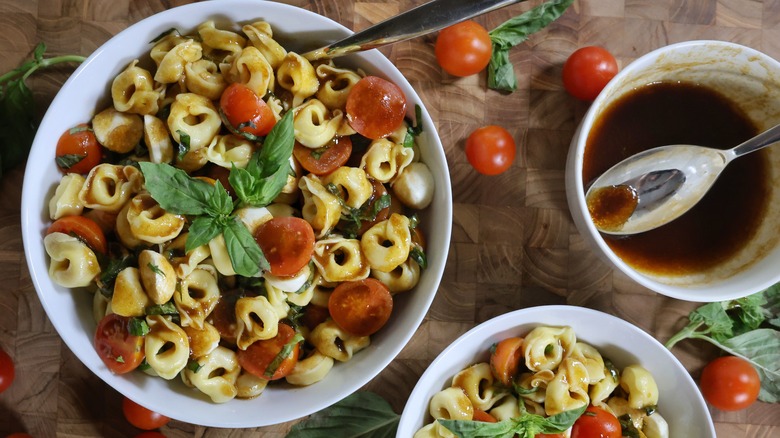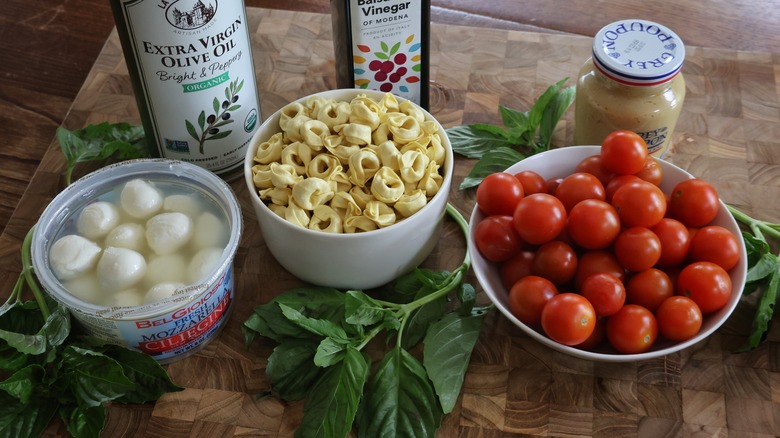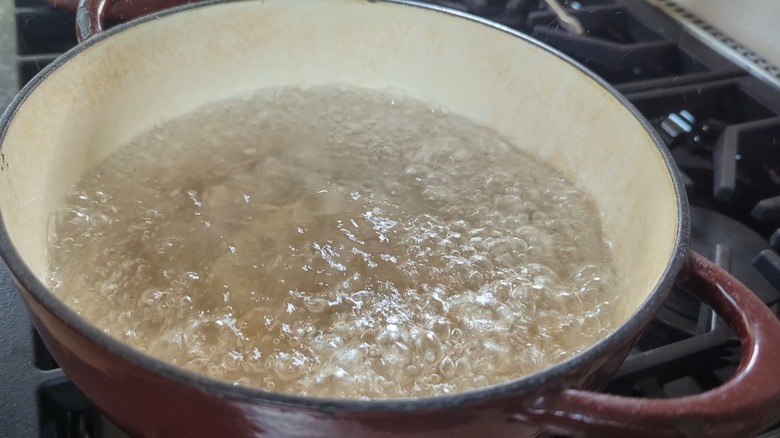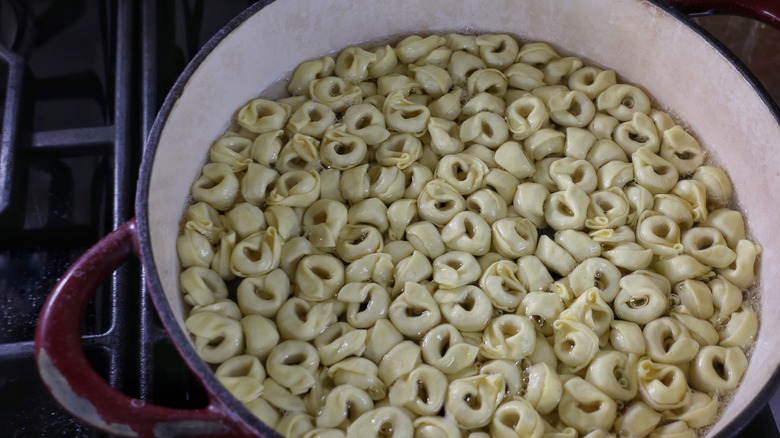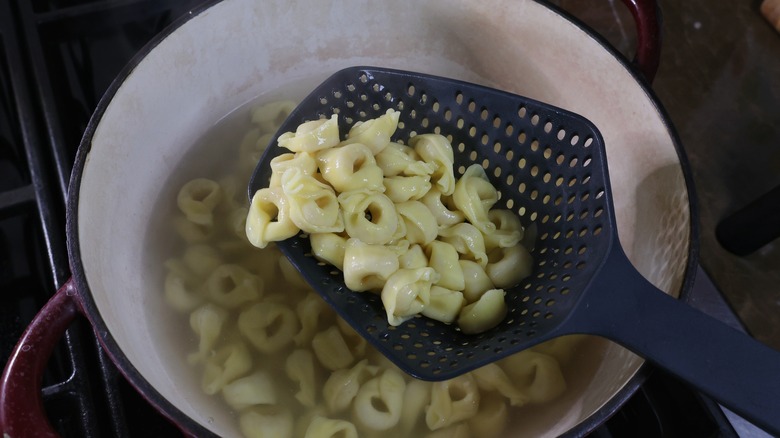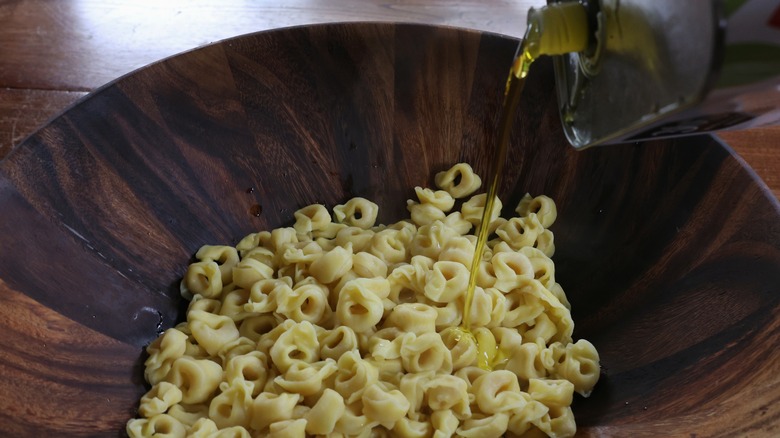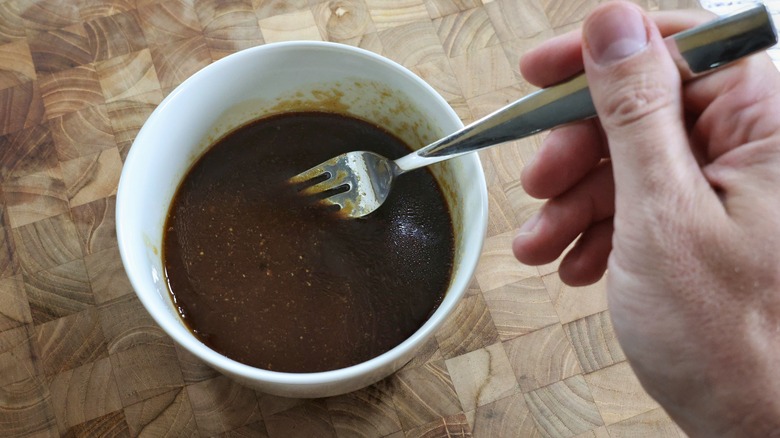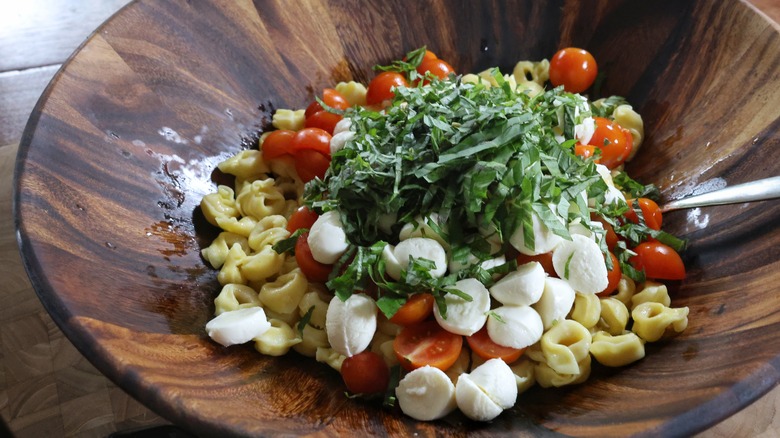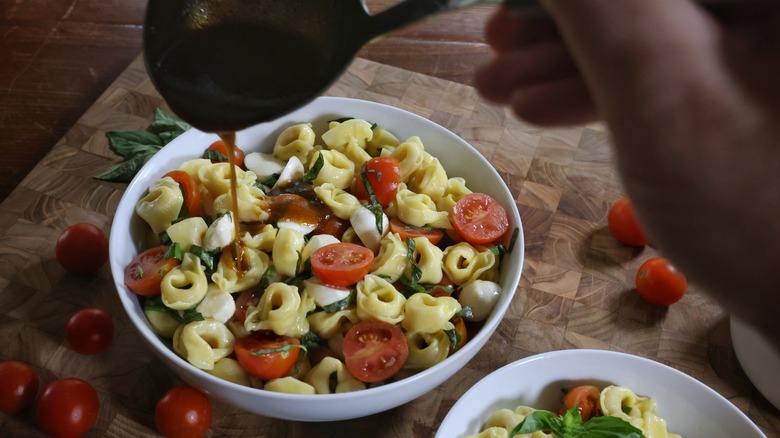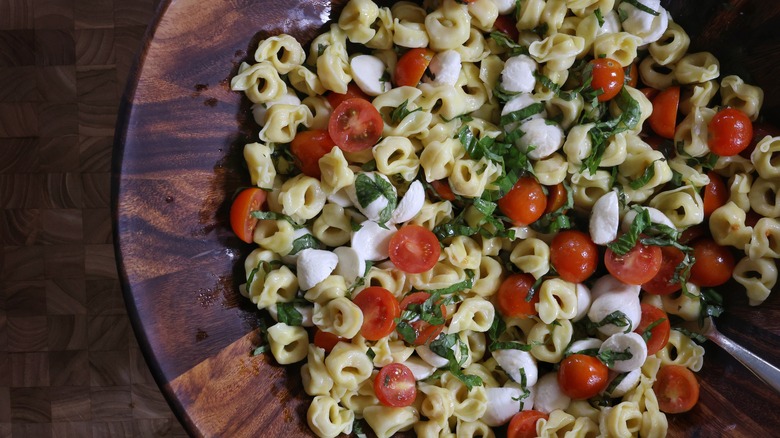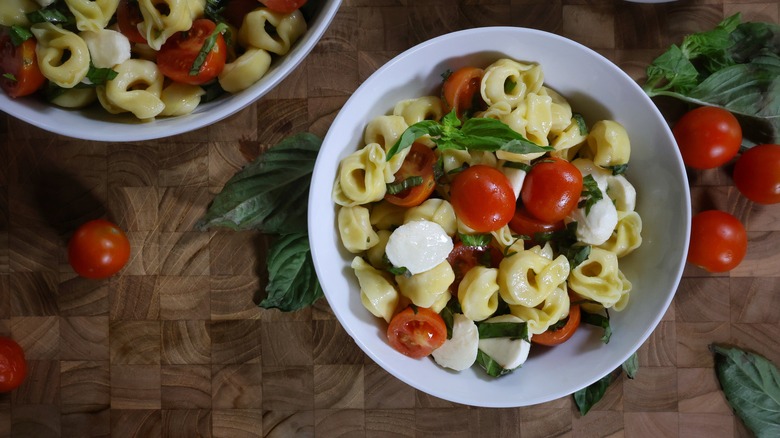Tortellini Caprese Pasta Salad Recipe
This recipe adds a touch of class to the classic summer side-dish pasta salad. Replacing plain noodles with tortellini is the first step, which adds tender, little bites of cheese to every forkful. But, the real trick to taking pasta salad to the next level is to bring in the flavors of a classic caprese salad. Fresh mozzarella, juicy tomatoes, fragrant basil, and a tangy balsamic vinaigrette all lend their savor to this salad, perfectly complementing the tender, cheese-filled tortellini and creating a pasta salad that is sure to please the whole crowd at your next barbecue or summer dinner party.
This pasta salad can be eaten as a warm side dish straight after you finish making it, or it can be stored in the fridge and served cold alongside a green salad and some grilled Italian pork skewers for a perfect summer meal. A bowl straight out of the fridge makes a nice, light lunch, too. However you choose to eat it, this recipe is one that you'll keep coming back to. It is simple, fresh, and delicious.
Gather the tortellini pasta salad ingredients
For this recipe, you will need tortellini, mozzarella, grape tomatoes, and basil for the salad. For the dressing, you will also need balsamic vinegar, Dijon mustard, and olive oil. Once you have gathered those ingredients together, you are only 20 minutes away from a delicious pasta salad.
Step 1: Boil water
Bring a large pot of well-salted water (around 1 teaspoon salt per 1 quart water) to a boil.
Step 2: Cook the pasta
Add the tortellini and cook to al dente according to package instructions.
Step 3: Drain the pasta
Drain the pasta and transfer it to a large bowl.
Step 4: Drizzle in oil
Add 1 tablespoon olive oil and stir to keep the pasta from sticking.
Step 5: Make the vinaigrette
Make the dressing by adding the balsamic vinegar and Dijon mustard to a bowl. Pour the oil in a thin stream while whisking.
Step 6: Add the toppings
Add the tomatoes, mozzarella, and basil to the bowl with the tortellini and stir together.
Step 7: Dress and serve
Drizzle over the vinaigrette and serve warm immediately or store in the refrigerator and serve cold at a later time.
Tortellini Caprese Pasta Salad Recipe
Two summer classics, pasta salad and caprese salad, meet in this refreshing side dish recipe, which outfits cheese tortellini with caprese ingredients.
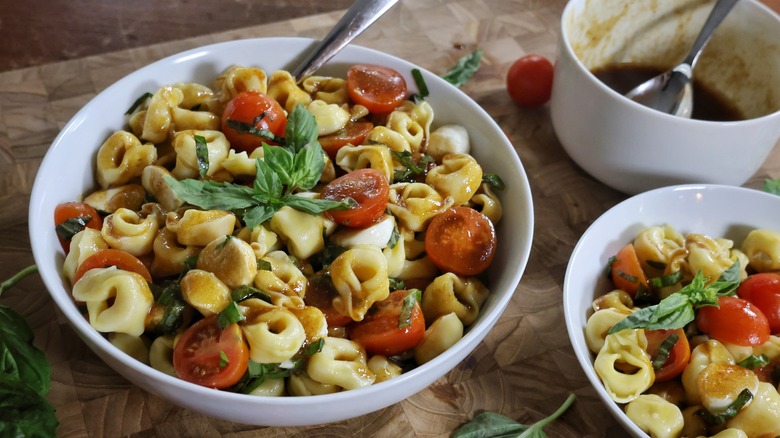
Ingredients
- For the pasta salad
- 8 ounces dry cheese tortellini
- 1 tablespoon olive oil
- 2 cups halved grape tomatoes
- 8 ounces small fresh mozzarella balls, halved
- ½ cup finely chopped basil
- Salt, to taste
- For the vinaigrette
- ¼ cup balsamic vinegar
- 1 teaspoon Dijon mustard
- ½ cup olive oil
Directions
- Bring a large pot of well-salted water (around 1 teaspoon salt per 1 quart water) to a boil.
- Add the tortellini and cook to al dente according to package instructions.
- Drain the pasta and transfer it to a large bowl.
- Add 1 tablespoon olive oil and stir to keep the pasta from sticking.
- Make the dressing by adding the balsamic vinegar and Dijon mustard to a bowl. Pour the oil in a thin stream while whisking.
- Add the tomatoes, mozzarella, and basil to the bowl with the tortellini and stir together.
- Drizzle over the vinaigrette and serve warm immediately or store in the refrigerator and serve cold at a later time.
Nutrition
| Calories per Serving | 349 |
| Total Fat | 30.3 g |
| Saturated Fat | 8.6 g |
| Trans Fat | 0.0 g |
| Cholesterol | 32.5 mg |
| Total Carbohydrates | 9.1 g |
| Dietary Fiber | 1.7 g |
| Total Sugars | 4.0 g |
| Sodium | 369.7 mg |
| Protein | 10.6 g |
Can I use fresh tortellini instead of dry tortellini in this pasta salad recipe?
These days, there are many fresh pasta options available at most grocery stores, particularly when it comes to stuffed pastas like tortellini, which cannot always be dried. This begs the question: Do they need to be treated differently, or can you subsitute these fresh pastas for dry pasta in a recipe?
Thankfully, you can almost always substitute fresh pasta in place of dry pasta. That said, there are a few differences between the two that you need to pay attention to in order to make sure your recipe comes off without a hitch.
First off, the weight is very different between fresh and dry pastas. Because fresh pasta contains so much more water than dry pasta, it's quite a bit heavier. If the recipe gives a weight for dry pasta, we suggest that you increase that weight by 25–50% for fresh pasta. For example, this recipe calls for eight ounces of dry tortellini. If you wish to substitute fresh tortellini, you should use 10–12-ounces.
The next major difference between dry and fresh pasta is the cooking time. Dry pasta typically needs to boil for close to 10 minutes in order to properly rehydrate. Fresh pasta is already hydrated, so it generally only needs a minute or two in the pot to fully cook. Keep these differences in mind, and you'll have no trouble ditching the dry pasta in favor of fresh.
What is the difference between tortellini and tortelloni?
Tortellini and tortelloni are both stuffed pastas from northern Italy. While they are quite similar in both name and appearance, there are a few key differences that separate them. So, what is the difference between tortellini and tortelloni?
For starters, tortellini are considerably smaller than tortelloni. For those of you who speak a bit of Italian, this will come as no surprise. The suffix -ini means small, while the suffix -oni means large. But, the relative size of these two pastas is not their only difference.
Tortellini are also typically filled with meat (and have a very strange origin story). In this recipe we opt for cheese tortellini and keep things vegetarian, but meat tortellini are the norm. Tortellini en brodo is a common preparation, which dishes up the pasta in a light broth.
When it comes to tortelloni, the filling is more often vegetarian. Mixtures of vegetables and cheese are quite common, such as spinach and ricotta. Tortelloni can be served with all sorts of sauces, both creamy and tomato-based, but a simple garlic butter is popular.
For this recipe, we chose cheese tortellini as the pasta base for several reasons. The cheese filling is mild, pairing with and not overpowering the tomatoes, basil, and mozzarella. Additionally, the small size of the pasta creates plenty of surface area for holding that delicious balsamic vinaigrette, ensuring that every bite has a little taste of every element.
